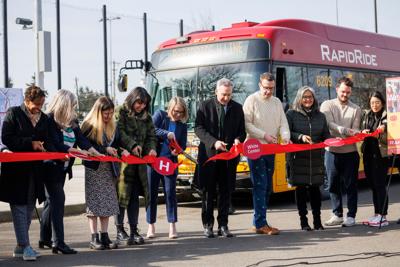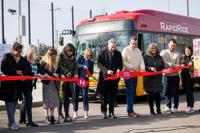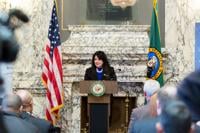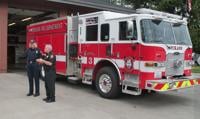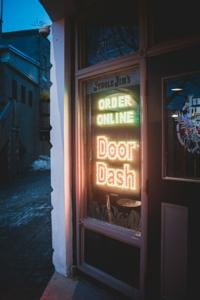(The Center Square) – King County Metro has opened a new RapidRide route that connects Unincorporated White Center to Seattle and Burien and improves ridership for 6,000 daily riders.
The county’s project totaled $154.1 million for new transit stations, bus lanes and traffic signal upgrades along the RapidRide H Line corridor. Funds stem from King County Metro, the city of Seattle, and the city of Burien.
The RapidRide H line covers downtown Seattle, West Seattle, White Center and Burien. The new line coincides with the county’s route 120, which carried 1.7 million riders in 2022 and is the sixth busiest route in King County, according to King County Executive Dow Constantine.
“This is an exciting moment for Metro riders in this community, whose buses will come more often, be more reliable and have more service on night and on weekends,” King County Councilmember Joe McDermott said in a statement. “I applaud the cooperation between Burien, King County, and the City of Seattle as we elevate service for thousands of riders each day.”
RapidRide is King County Metro's initiative to provide more buses at a faster rate, increase the number of new bus stations throughout the region and reduce the number of cars on the road.
Buses on the RapidRide H corridor serve communities with lower incomes than the county household median of $99,158, according to Constantine. County officials expect the new route to better connect riders to resources, including the White Center Food Banks’s new facility.
“What I’m looking forward to the most is that our new facility is right around the corner from the 102nd & 15th stop," White Center Food Bank Executive Director Carmen Smith said. "This will give families quick access to the bus line without having to carry their groceries far and the opportunity to rely on a bus route that is consistent.”
The city of Seattle’s contribution to the RapidRide H corridor included road pavements, new bus lenses and 20 new bus stops that cost over $90 million. Funds stemmed from the voter-approved Levy to Move Seattle, which generates an anticipated $930 million over nine years.
